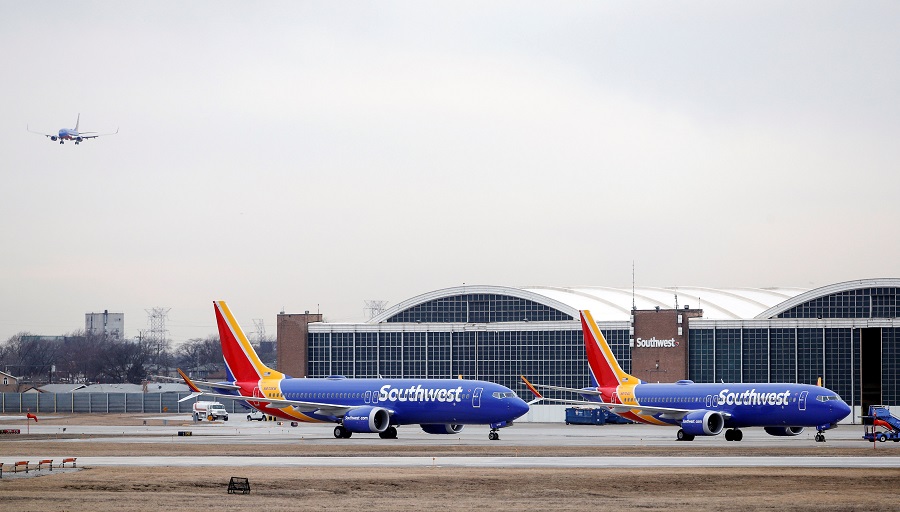Safety should top aviation firm's concerns


Editor's Note: An ongoing investigation has found similarities between the Ethiopian Airlines crash on March 10 and the Lion Air crash in Indonesia six months ago which killed 157 people and 189 people, respectively. That both aircraft were Boeing 737 Max 8 has prompted many countries to ground the model. What will be the impact of the crash on Boeing in particular and the global aircraft industry in general? Two experts share their views on the issue with China Daily's Liu Jianna. Excerpts follow:
Boeing could suffer huge loss due to crash
Given that Boeing has received firm orders for more than 5,000 Max aircraft and delivered 350 of them, the company could suffer a lethal blow if the aircraft's design proves to be flawed and all the airlines cancel their orders. If this were to happen, Boeing would suffer a loss of more than $500 billion-an astronomical loss considering that the company's revenue surpassed $100 billion for the first time only last year.
Plane crashes have caused the demise of four aircraft manufacturers including the passenger aircraft division of Lockheed Martin. So the two crashes could significantly undermine Boeing's reputation and accountability.
It seems the expansion of the engines that led to changes in the 737 Max 8's aerodynamics could have caused the crash, though many suspect the automated flight software called the Maneuvering Characteristics Augmentation System is to blame.
Actually, pilots of Chinese airlines experienced similar problems before but, thanks to their experience, they managed to overcome them. Which prompted relevant parties to seek Boeing's response on how to solve the problems and made China the first country to ground the 737 Max after the Ethiopian Airlines plane crashed.
That Boeing didn't ask the airlines operating the 737 Max to ground the aircraft soon after the Lion Air crash is regrettable. And it is surprising that the United States Federal Aviation Administration hasn't asked all US airlines to ground the plane immediately after the crash until its safety is confirmed. Both Boeing and the FAA, its regulator, seem to have acted irresponsibly.
According to Bloomberg, the FAA has shifted more responsibility and authority for the approval of new aircraft to the manufacturer itself. Yet the FAA's authority has not reduced greatly, as it constantly adjusts and improves its regulations and working mechanisms. So it should introduce more checks and balances to make the system more effective.
As for China, it may not gain much from the setback suffered by Boeing, because it lags far behind the US and France in the aircraft manufacturing industry. However, it could prove to be a boon for Airbus, Boeing's main competitor.
Ning Zhenbo, lead consultant for the Center of Information Technology, Aviation Industry Corporation of China, Ltd
Limited impact on aircraft industry
The two crashes will deal a blow to the Boeing brand, especially because many experts believe there is a fault with the aircraft's design.
Besides, the FAA's poor handling of the tragedy-unbecoming of a leading global aviation safety regulator-would impair the US aviation agency's authority.
Nonetheless, the impact of the accidents on the global aviation manufacturing industry may not be debilitating.
After all, as a leading aircraft manufacturer, Boeing plays an essential role in the global aviation industry's development.
But by being the first country to ground the Boeing 737 Max planes, China has shown it puts people's safety above everything else, which could give China greater say in the international aviation industry discourse.
He Wenping, a senior researcher in African studies at the Chinese Academy of Social Sciences

































